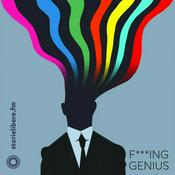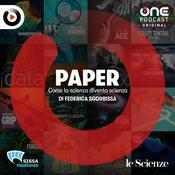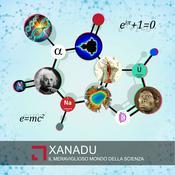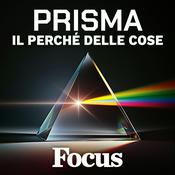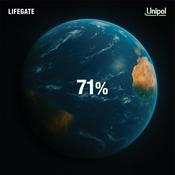734 episodi
- Welcome to Astronomy Daily! Join hosts Anna and Avery for today's cosmic journey through space news, featuring SpaceX's audacious plan for one million solar-powered satellites, an ancient star catalog recovered from layers of medieval text, and China's groundbreaking solar mission to the L5 point.
**Episode Highlights:**
🛰️ **SpaceX's Million-Satellite Vision** - SpaceX files with the FCC to launch up to one million solar-powered satellite data centers for AI, framing it as a step toward becoming a Kardashev Type II civilization
⭐ **Ancient Star Map Revealed** - Scientists use X-ray technology to uncover Hipparchus's 2,000-year-old star catalog hidden under six layers of ink in a medieval manuscript
☀️ **China's Solar Observatory** - The Xihe-2 probe will become the first mission to monitor solar activity from the Sun-Earth L5 point, offering five-day advance warnings of space weather events
🔭 **Stellar Detective Story** - Astronomers discover WOH G64 isn't dying after all—a hidden companion star was fooling scientists about the red supergiant's fate
🚀 **Time Honors Artemis 2** - Time magazine releases special commemorative cover celebrating the Artemis 2 crew ahead of humanity's return to lunar orbit
🌍 **Remembering Gladys West** - Honoring the GPS pioneer and "Hidden Figure" whose mathematical work shaped navigation technology used by billions worldwide
**Episode Length:** 18-20 minutes
**Hosts:** Anna & Avery
**Production:** Astronomy Daily Podcast, Season 5
---
## Connect With Us
🌐 Website: astronomydaily.io
🐦 Twitter/X: @AstroDailyPod
📘 Facebook: @AstroDailyPod
📸 Instagram: @AstroDailyPod
🎵 TikTok: @AstroDailyPod
📺 YouTube: @AstroDailyPod
📱 Tumblr: @AstroDailyPod
---
## Story Sources
- TechCrunch
- Daily Galaxy
- Space.com
- Journal for the History of Astronomy
- CGTN News
- Keele University
- U.S. Department of Defense
Become a supporter of this podcast: https://www.spreaker.com/podcast/astronomy-daily-space-news-updates--5648921/support.
Sponsor Details:
Ensure your online privacy by using NordVPN. To get our special listener deal and save a lot of money, visit www.bitesz.com/nordvpn. You'll be glad you did!
Become a supporter of Astronomy Daily by joining our Supporters Club. Commercial free episodes daily are only a click way... Click Here
This episode includes AI-generated content. - Join hosts Anna and Avery for Saturday's cosmic roundup! NASA's Artemis 2 wet dress rehearsal faces weather delays, pushing the historic lunar mission to April 2026. Blue Origin announces a major strategic shift, pausing space tourism for two years to focus on their Blue Moon lunar lander program. We explore million-mile-per-hour cosmic winds racing through a "magnetic superhighway" in colliding galaxies, investigate a mysterious object sending unexplained signals across the galaxy, discover why Tatooine-style planets might be more common than expected, and celebrate a groundbreaking first - the detection of ethanolamine, a molecule critical to cell membranes, in interstellar space.
**Episode Keywords:** Artemis 2, NASA, Blue Origin, New Shepard, space tourism, lunar lander, cosmic winds, galaxy merger, IC 1623, mysterious signals, radio astronomy, circumbinary planets, binary stars, ethanolamine, astrobiology, interstellar molecules, space exploration, Kennedy Space Center
**Detailed Chapter Markers:**
- [00:00] Introduction & Episode Overview
- [02:15] NASA Artemis 2 Wet Dress Rehearsal Delay
- [06:45] Blue Origin Pauses Space Tourism for Lunar Ambitions
- [11:20] Million-MPH Cosmic Winds in Magnetic Superhighway
- [16:30] Mysterious Object Sending Unexplained Galactic Signals
- [21:15] Tatooine Planets More Common Than Expected
- [26:00] Life-Critical Molecule Detected in Interstellar Space
- [30:45] Episode Wrap-Up & Closing
Become a supporter of this podcast: https://www.spreaker.com/podcast/astronomy-daily-space-news-updates--5648921/support.
Sponsor Details:
Ensure your online privacy by using NordVPN. To get our special listener deal and save a lot of money, visit www.bitesz.com/nordvpn. You'll be glad you did!
Become a supporter of Astronomy Daily by joining our Supporters Club. Commercial free episodes daily are only a click way... Click Here
This episode includes AI-generated content. - Witness the largest volcanic eruption ever seen on Jupiter's moon Io, explore NASA's breakthrough in nuclear propulsion, and discover evidence of ancient Martian beaches that could rewrite the story of life beyond Earth.
In this episode, we cover:
• NASA's Juno spacecraft captures a colossal 150-mile-high volcanic plume on Io
• KRUSTY nuclear reactor test paves the way for deep space exploration
• Ancient beach deposits in Gale Crater reveal Mars' watery past
• Artemis II communication networks ready for lunar missions
• The Moon's February celestial tour featuring Venus, Saturn, and Jupiter
• Life's chemical building blocks form naturally in interstellar space
Hosted by Anna and Avery, Astronomy Daily brings you the latest space and astronomy news in an engaging, accessible format perfect for enthusiasts and curious minds alike.
**Links & Resources:**
Visit astronomydaily.io for full articles, transcripts, and sources
Follow us @AstroDailyPod on social media
Watch on YouTube
Become a supporter of this podcast: https://www.spreaker.com/podcast/astronomy-daily-space-news-updates--5648921/support.
Sponsor Details:
Ensure your online privacy by using NordVPN. To get our special listener deal and save a lot of money, visit www.bitesz.com/nordvpn. You'll be glad you did!
Become a supporter of Astronomy Daily by joining our Supporters Club. Commercial free episodes daily are only a click way... Click Here
This episode includes AI-generated content. - Join hosts Anna and Avery for an exciting journey through today's most compelling space stories. We explore Mercury's surprising geological activity, NASA's TESS satellite recovery, a frigid Earth-like exoplanet discovery, an accelerated ISS crew launch, runaway black holes tearing through space, and the scientific opportunities of a potential lunar asteroid impact in 2032.
### Episode Highlights
**Mercury's Hidden Activity**
New research reveals that Mercury, long considered geologically dead, is still actively losing volatile materials from its interior. Using AI analysis of 100,000 MESSENGER images, scientists have mapped 400 bright slope streaks that indicate ongoing geological processes. The BepiColombo mission will provide unprecedented new data when it arrives at Mercury.
**TESS Satellite Recovery**
NASA's planet-hunting TESS satellite recently entered safe mode after a command error caused solar panel misalignment. The spacecraft successfully recovered, demonstrating the importance of built-in safeguards. NASA is reviewing procedures to prevent future incidents.
**Ice-Cold Earth Twin**
Astronomers have discovered HD 137010 b, an Earth-like exoplanet 146 light-years away that could be as cold as minus 90°F. Despite frigid temperatures, it orbits within its star's habitable zone, offering insights into the diversity of potentially habitable worlds.
**Crew-12 Launch Advanced**
SpaceX and NASA have moved up the Crew-12 launch to February 11, four days earlier than planned, to provide relief for the three-person skeleton crew managing the ISS after the first-ever medical evacuation from the station.
**Runaway Black Holes Confirmed**
The James Webb Space Telescope has confirmed the first runaway supermassive black hole, ejected from its galaxy and leaving a 200,000 light-year trail of newborn stars. Traveling at 1,600 km/s, this discovery validates 50-year-old theoretical predictions.
**Moon Impact Opportunity**
Asteroid 2024 YR4 has a 4% chance of striking the Moon on December 22, 2032. While posing risks to satellites and Earth, such an impact would provide unprecedented scientific data on lunar geology, create spectacular meteor displays, and deliver free lunar samples to Earth.
### Featured Stories
1. **Mercury Still Geologically Active** - University of Bern researchers discover 400 bright streaks indicating ongoing volatile loss (Source: Space Daily)
2. **TESS Satellite Command Error** - NASA's exoplanet hunter recovers from safe mode after solar panel misalignment (Source: Daily Galaxy)
3. **Frigid Earth-Like Planet Discovery** - HD 137010 b joins the search for Earth's twin despite extreme cold (Source: Daily Galaxy)
4. **ISS Crew-12 Launch Moved Up** - February 11 launch provides relief after historic medical evacuation (Source: Space.com)
5. **First Confirmed Runaway Black Hole** - JWST observations validate theoretical predictions with stunning stellar trail (Source: Phys.org/Science Sources)
6. **Asteroid 2024 YR4 Lunar Impact** - 4% chance creates scientific opportunity and satellite risk in 2032 (Source: Universe Today)
### Hosts
Anna and Avery
### Links & Resources
- Website: astronomydaily.io
- Social Media: @AstroDailyPod (X, Facebook, Instagram, YouTube)
- Subscribe for daily space news and updates
Become a supporter of this podcast: https://www.spreaker.com/podcast/astronomy-daily-space-news-updates--5648921/support.
Sponsor Details:
Ensure your online privacy by using NordVPN. To get our special listener deal and save a lot of money, visit www.bitesz.com/nordvpn. You'll be glad you did!
Become a supporter of Astronomy Daily by joining our Supporters Club. Commercial free episodes daily are only a click way... Click Here
This episode includes AI-generated content. Solar Sentinel Reaches L1, Challenger's 40-Year Legacy, and AI's Hubble Discoveries
28/01/2026 | 15 min## Today's Headlines:
🛰️ **NOAA Solar Observatory Reaches L1**
NOAA's Space Weather Follow-On satellite successfully arrived at Lagrange point 1 on January 21st, establishing the first component of a future constellation designed to provide early warning of solar storms and coronal mass ejections. The satellite offers 15-60 minutes advance notice of space weather events that could impact Earth's infrastructure.
🚀 **Challenger Disaster: 40 Years Later**
Marking four decades since the Space Shuttle Challenger tragedy, we examine how unseasonably cold weather and O-ring failures led to the loss of seven crew members. The disaster fundamentally changed NASA's safety culture and decision-making processes, lessons that continue to influence spaceflight today.
🤖 **AI Uncovers Cosmic Treasures in Hubble Archive**
Advanced artificial intelligence algorithms have identified hundreds of previously undetected gravitational lenses in Hubble Space Telescope data. These discoveries include rare Einstein rings and exotic lensing configurations that provide windows into the early universe and dark matter distribution.
☄️ **Venus's Potential Meteor Shower**
Astronomers predict Venus may experience a significant meteor shower in July 2026 from debris of asteroid 2002 VT37. The event offers a rare opportunity to study how meteor showers interact with Venus's dense carbon dioxide atmosphere.
🌌 **Stellar Fireworks at the Galactic Center**
New observations reveal intense stellar activity near Sagittarius A*, our galaxy's supermassive black hole, including star formation, supernovae, and tidal disruption events in one of the most extreme environments in the Milky Way.
📡 **Watch Artemis 2 Rocket Live**
NASA has launched a 24-hour livestream of the Artemis 2 Space Launch System rocket on Launch Pad 39B as crews prepare for the first crewed lunar mission since 1972, currently targeting April 2026. https://www.youtube.com/watch?v=nrVnsO_rdew
#### Resources & Links:
- Story Sources: SpaceNews, Spectrum Local News, NASA Science, Space.com, Universe Today
- Website: astronomydaily.io
- Social Media: @AstroDailyPod (all platforms)
Become a supporter of this podcast: https://www.spreaker.com/podcast/astronomy-daily-space-news-updates--5648921/support.
Sponsor Details:
Ensure your online privacy by using NordVPN. To get our special listener deal and save a lot of money, visit www.bitesz.com/nordvpn. You'll be glad you did!
Become a supporter of Astronomy Daily by joining our Supporters Club. Commercial free episodes daily are only a click way... Click Here
This episode includes AI-generated content.
Altri podcast di Scienze
Podcast di tendenza in Scienze
Su Astronomy Daily: Space News Updates
Join hosts Anna & Avery for daily Space & Astronomy news, insights, and discoveries.Give us 10 minutes and we'll give you the Universe!For more visit, our website and sign up for the free daily newsletter and check out our continually updated newsfeed. www.astronomydaily.io.Follow us on X (formerly Twitter), Facebook, YouTube and TikTok ...just search for AstroDailyPod. Enjoy!Become a supporter of this podcast: https://www.spreaker.com/podcast/astronomy-daily-space-news-updates--5648921/support.
Sito web del podcastAscolta Astronomy Daily: Space News Updates, F***ing genius e molti altri podcast da tutto il mondo con l’applicazione di radio.it
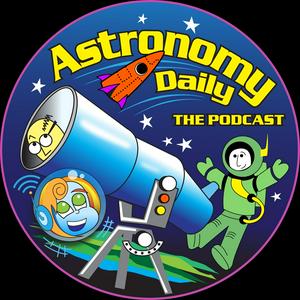
Scarica l'app gratuita radio.it
- Salva le radio e i podcast favoriti
- Streaming via Wi-Fi o Bluetooth
- Supporta Carplay & Android Auto
- Molte altre funzioni dell'app
Scarica l'app gratuita radio.it
- Salva le radio e i podcast favoriti
- Streaming via Wi-Fi o Bluetooth
- Supporta Carplay & Android Auto
- Molte altre funzioni dell'app


Astronomy Daily: Space News Updates
Scansione il codice,
scarica l'app,
ascolta.
scarica l'app,
ascolta.

